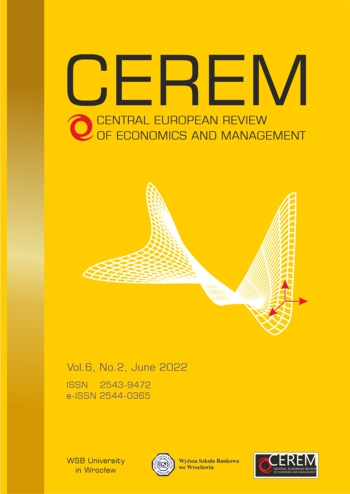Shared value creation and sustainable development: developing a causal model by analyzing energy cooperatives in different institutional contexts
Shared value creation and sustainable development: developing a causal model by analyzing energy cooperatives in different institutional contexts
Author(s): Ireen GERRITS, Bart Jan Willem (Bartjan) PENNINKSubject(s): Energy and Environmental Studies
Published by: Wyższa Szkoła Bankowa we Wrocławiu
Keywords: Creating Shared Value (CSV); New Business Models (NBMs); Causal model; Energy cooperatives;
Summary/Abstract: Aim: A theoretical understanding of the process, causal linkages, and dynamics of creating shared value (CSV) is largely missing in the field of shared value creation and sustainable development. Hence, this research is explorative by nature and aims to contribute to theory building in this field. First, we collect empirical data and analyze it, to better understand how the shared value creation process in energy cooperatives works. Second, we present a first causal model of the dynamics and relationships between values, actors and cooperation, which needs to be further tested and refined.Design: First, we collect empirical data and analyze it, to better understand how the shared value creation process in energy cooperatives works. Second, we present a first causal model of the dynamics and relationships between values, actors and cooperation, which needs to be further tested and refined. This research was executed by conducting eight case studies in Belgium and Dutch energy cooperatives. Stemming from different countries, they are all moving towards new business models and provide insights about different institutional contexts.Findings: The findings show how a variety of values, more actors, and increased cooperation lead to (more) shared value creation. However, these relations are moderated by members’ differing needs, the involvement of the members, and characteristics of the organizational context. Additionally, new influential variables are discovered: professionalization and institutional context.Limitations: More (experimental) research is needed to exclude alternative causal explanations, as well as and to test and refine the model.Implications: This study provides a direction for testing the causal linkages found with other research designs and methods or in other organizational contexts. Additionally, the causal model could give practitioners and researchers insights into which variables to manipulate to get more or less shared value.Contributions: This study uniquely contributes to the knowledge of the concept of shared value creation to ultimately reach sustainable development by combining detailed insights into the value creation process with a comprehensive ready-to-test causal model.
Journal: Central European Review of Economics and Management (CEREM)
- Issue Year: 6/2022
- Issue No: 2
- Page Range: 37-70
- Page Count: 34
- Language: English

